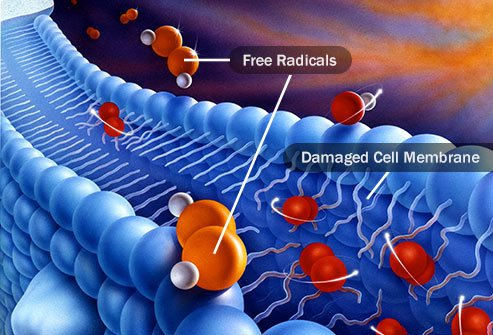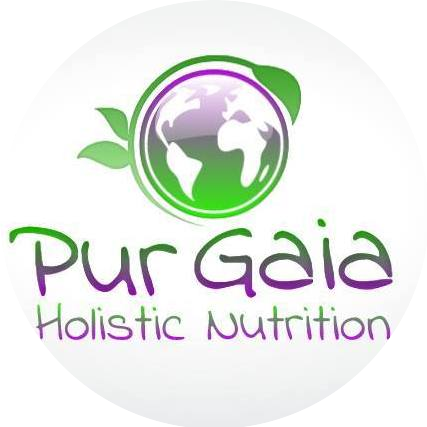What The Heck Are Antioxidants Anyways?
- Cherisa Klopick

- Sep 27, 2019
- 3 min read
Updated: Oct 30, 2019

We all want to be healthy and learning about nutrition can be daunting. There are so many newfangled words to learn and understand. Let's see if we can clear some things up!
What Are Antioxidants?
They’re chemicals that fight a process in your cells called oxidation. The main source is plant-based foods, but your body makes some, too. You’re probably familiar with vitamins C and E, beta-carotene, and the minerals selenium and manganese. Plant nutrients and chemicals like flavonoids, phenols, polyphenols, and phytoestrogens are also antioxidants.
What Do Antioxidants Do?Each one works differently. Together they form a team that fights free radicals. These chemicals cause the oxidation process that damages your cells and the genetic material inside them. Your body makes free radicals as it processes food, sunlight, and toxins like smoke, pollution, and alcohol. Antioxidants either stop free radicals before they form or break them down so they’re harmless
How to Increase Antioxidants in the Diet
The natural way to increase the body's antioxidants is to eat antioxidant-rich foods. These essential vitamins and minerals are only found in whole, natural foods that have undergone little to no processing. The following list represents the antioxidants (and the foods one needs to eat), in order to obtain them.
Vitamin C
Vitamin C is a water-soluble vitamin, and the body's first line of defense against illnesses. Because this vitamin cannot be stored by the body, it is important to eat a diet that supplements vitamin C daily. Food sources of this antioxidant include citrus fruits, green leafy vegetables, strawberries, green bell peppers, broccoli, cabbage, and potatoes.
Vitamin E
Vitamin E is a fat-soluble vitamin that helps protect the body's largest organ, the skin. Sources of this vitamin include whole grains, nuts and seeds, wheat germ, green leafy vegetables, and fish-liver oil.
Beta-Carotene
Beta-carotene is the most studied of the 600 carotenoid antioxidants, because of its incredible ability to protect vegetables and fruits from UV damage, and because it offers the same protection values to humans. It is also an essential antioxidant for good eye health. Beta-carotene can be found in dark green, yellow, and orange-colored fruits and vegetables, including kale, collards, broccoli, carrots, pumpkins, tomatoes, cantaloupe, peaches, and apricots.
Selenium
Selenium is a powerful cancer-fighting antioxidant. The best dietary sources of selenium include fish, shellfish, eggs, chicken, garlic, grains, and red meat. Certain vegetables can also be a source of selenium, but only if and when they are grown in selenium-rich soil.
Glutathione
Glutathione is an essential antioxidant that helps protect cells from free radicals and other toxins. It is naturally produced in the body through the synthesis of cysteine, glycine, and glutamic acid, but because it is so beneficial, it is important to eat foods that are high in this antioxidant as well. Such foods include asparagus, avocado, spinach, zucchini, broccoli, watermelon, strawberries, cantaloupe, peaches, and squash.
Peroxidase
Peroxidase is an enzyme antioxidant that occurs naturally in plants and milk. It can be found in such foods as mangoes, soybeans, turnips, and horseradish root.
Flavonoids
Flavonoids are wide-ranging, with more than 4,000 different types, but they prove to be the most effective when they are consumed together. They help promote antioxidant activity throughout the body, helping to improve the health of cells, and tissue renewal. When taken with vitamin C, flavonoids help reduce oxidative stress, and the effects of aging. Popular sources of flavonoids include cranberries, beets, grapes (red or black), oranges, lemons, berries, green tea, grapefruit, and kale.
Polyphenol Antioxidants
Polyphenol antioxidants have been shown to be effective at helping combat oxidative stress, but they are not produced naturally by the body. Therefore, the only way to get these antioxidants is to eat phytonutrient-rich foods, such as blackberries, blueberries, cherries, cranberries, raspberries, strawberries, apples, cantaloupe, grapes, pears, broccoli, cabbage, celery, onion, green tea, bee pollen, olive oil, whole grains, and chocolate.





Comments